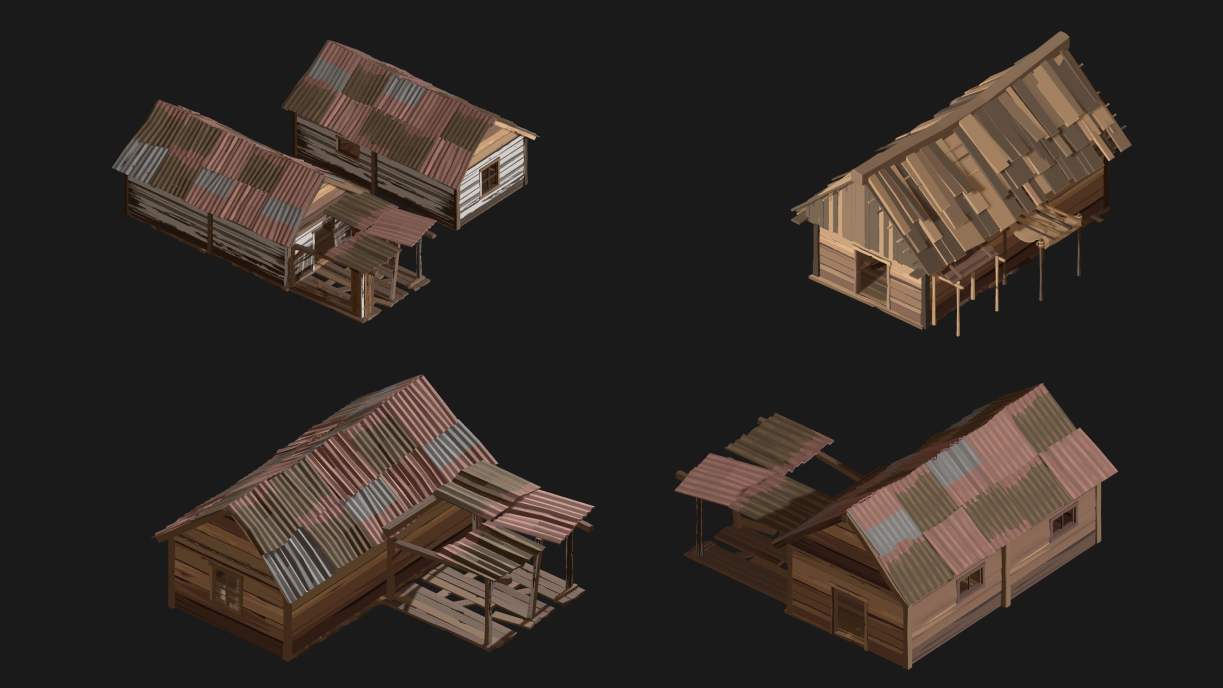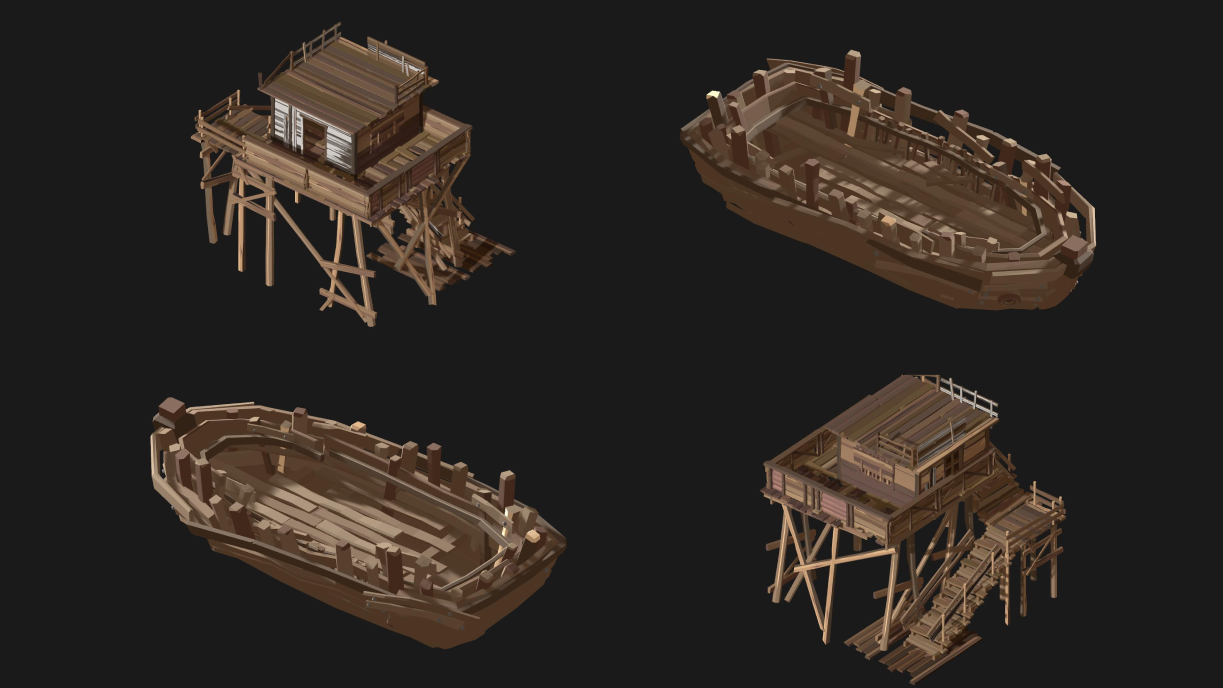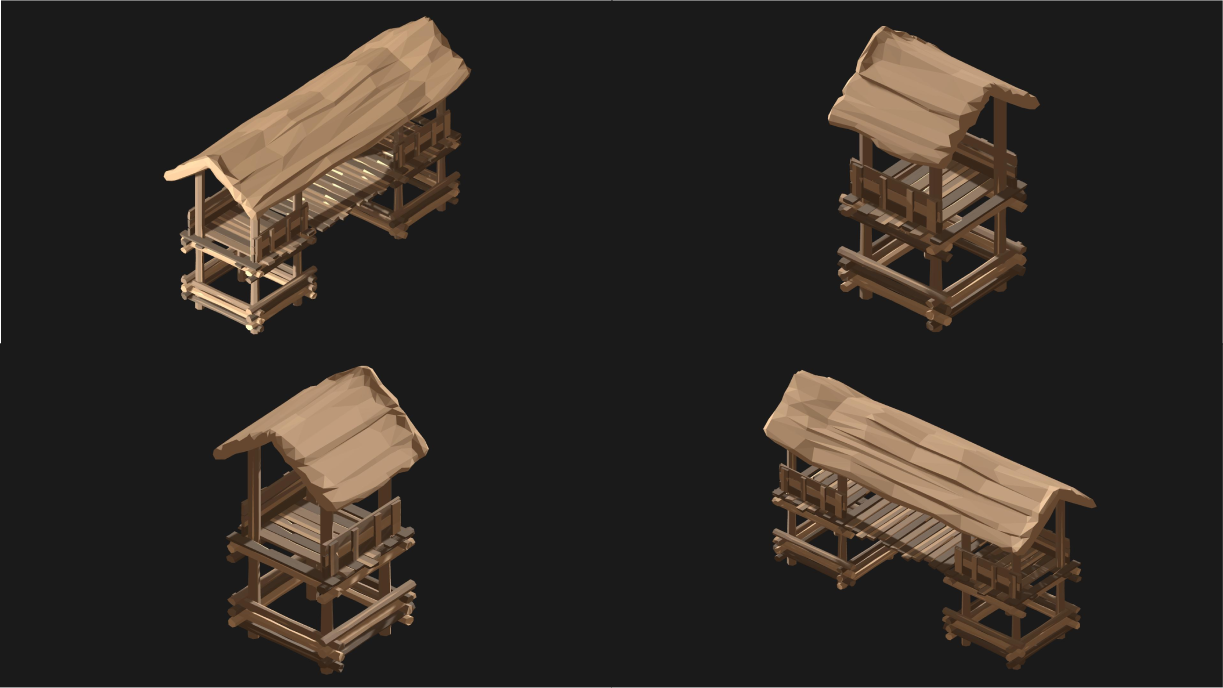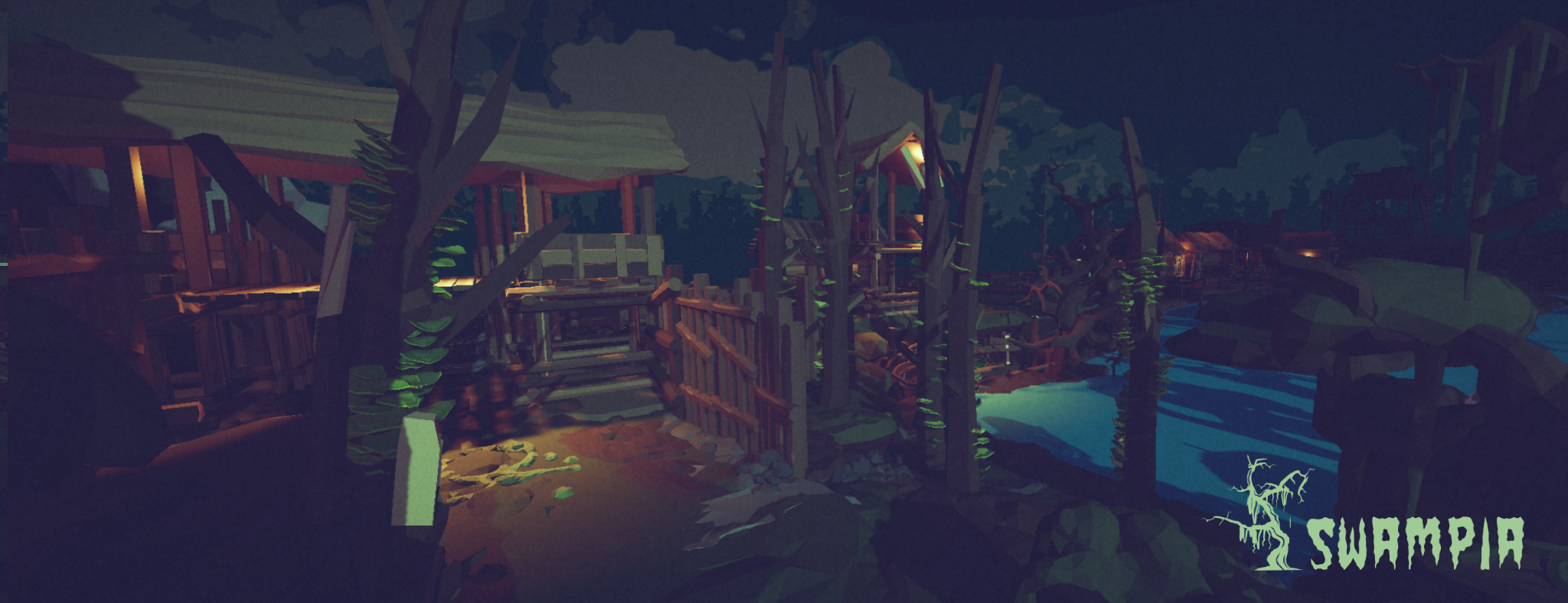[Devlog #3] – Swampia: Structuring Through Composition
Hi!
At this stage, it’s no longer a race for polygons or a decoration festival. This is when everything starts coming together — when the scene starts to speak.
Each object stops being just a “model” and becomes an architectural gesture: a direction, a rhythm, a shift in weight. And the key question I keep asking isn’t “what should I place here?”, but:
Does this add anything to the space?
Does it suggest something, organize, guide?
If not — it’s taking up space instead of building the world
Huts – Weight, Rhythm, Function
I begin with a basic geometric shape — a raised box on stilts. Even the decision to lift it changes its role — it elevates from the ground, implies wet or unstable terrain, adds vertical tension to the silhouette.
When I add a porch, the hut gains an entrance, a direction, and shade. Two of them placed side by side instantly create rhythm — the hint of a street or movement path.
The longer variants work as visual glue in the background. A steady ridge line leads the eye, and single, rhythmic windows add small accents without overcrowding the flat wall surfaces.

Tower – Framing the Scene
Towers often get added as "something tall to fill space." But I’m after something more.
This tower has a specific role: it closes the composition, hints at orientation, and creates a vertical counterpoint to the flat profile of the settlement. With ramps and walkways at its base, it doesn’t float in isolation — it becomes part of the layout. I anchor it into the environment.
Roofed Structures – Connective Threads
Low porch covers and long market awnings aren’t just functional. For me, they’re compositional tools.
A well-placed roof can break repetition, soften symmetry, direct attention. I think of them as shadows — they should suggest, not obstruct.
They cover open gaps, frame the shot, direct the gaze, and add the final sprinkle of visual texture. In a well-built scene, spaces interlock above the player’s head — these roofed elements become threads tying the space together.
Boat Frame – Silent Storytelling
A single, unfinished boat is enough to suggest the whole process: a workshop, a break in the day, a history in progress. A clear keel, thin ribs — everything says: “someone was here, something happened.”
It’s a micro-narrative. No animation, no quest marker. Just presence. And often, that’s enough.

Roofs – Rhythm and Control
Roofs are what dominate the composition from a distance. Instead of just one style, I create a set: metal sheets, planks, patches. Three edge types — clean, broken, jagged — let me control spatial rhythm.
Remember how they did it in Khorinis? The roofs in that town were its internal path network. I’m aiming for something similar — a visual guide built into the skyline.
Boarded Windows – Spatial Signals
Not every wall needs to reveal something. A covered window is a choice too. It signals: off-limits, private, forgotten. I express that with a simple panel — no need for extra geometry.
Scenes like that send subtle signals — visual “blinks” that might catch a player’s eye, or might not. But they’re there.
These elements let me vary façade rhythm without multiplying forms.

Thinking Spatially
Instead of asking “where can I drop another object?”, I ask: what am I building in this direction?
What leads the eye from the entrance to the plaza?|
What closes off the scene at the sides?
Will the player understand where they can go, and what’s just background?
I’m not chasing photorealism — I’m aiming for readability of space as a world.
Technical (brief)
URP + ACES
Lighting: low Directional angle + short-range local lights. Cookies only where they help edge readability.
Ultra-flat style; shared palette/atlas where possible
Snap: 0.5 m (or 0.25 m for fine detail)
Pivots: mostly base-center. Exceptions: gate – hinge-left, stairs – lower landing, boat – keel-center
LODs: 0/1/2. Colliders: MeshColliders
Get FREE Swampia Architecture
FREE Swampia Architecture
Stylized low-poly swamp-village kit for Unity. Modular walkways, stilt huts, boats and props.
| Status | In development |
| Category | Assets |
| Author | EmaceArt |
| Tags | 3D, environment, game-assets, Halloween, Low-poly, Modular, stylized, swamp, Unity |
More posts
- [Devlog #5] Swampia Village: Lovecraft Vibe in Modular33 days ago
- [Devlog #4] Modular FlatGround patches — mud, grass, rock, roots46 days ago
- [Devlog #2] Night pass: grading, lighting, post-FX, bigger demo comming49 days ago
- [Devlog #1] Swampia Architecture — the final stretch. Come along.52 days ago

Leave a comment
Log in with itch.io to leave a comment.